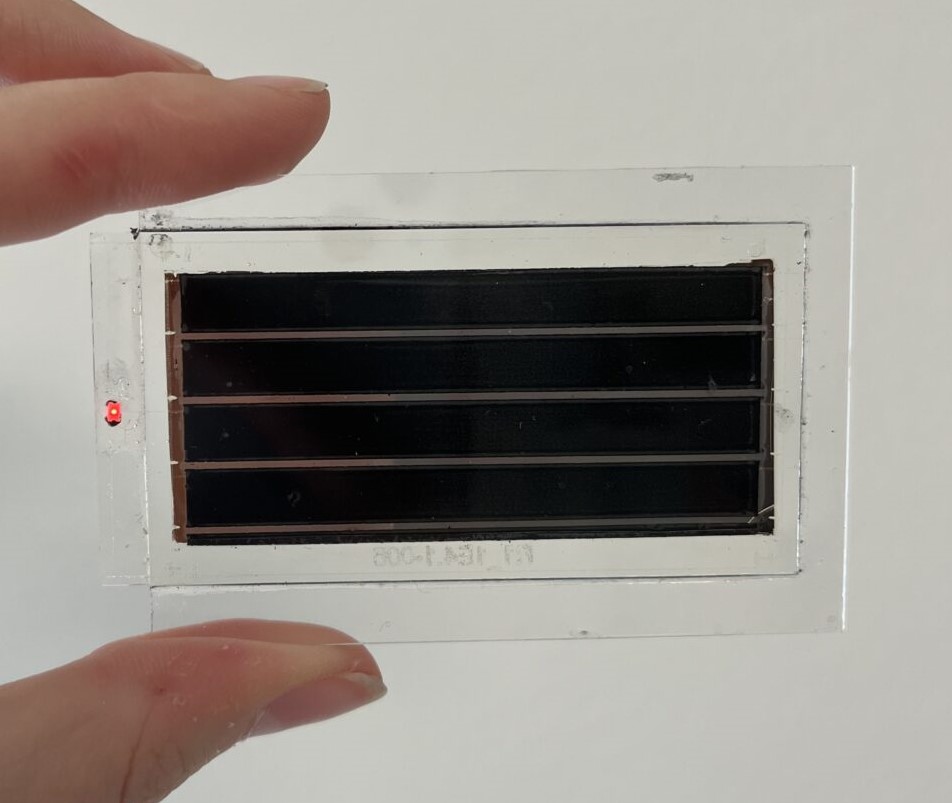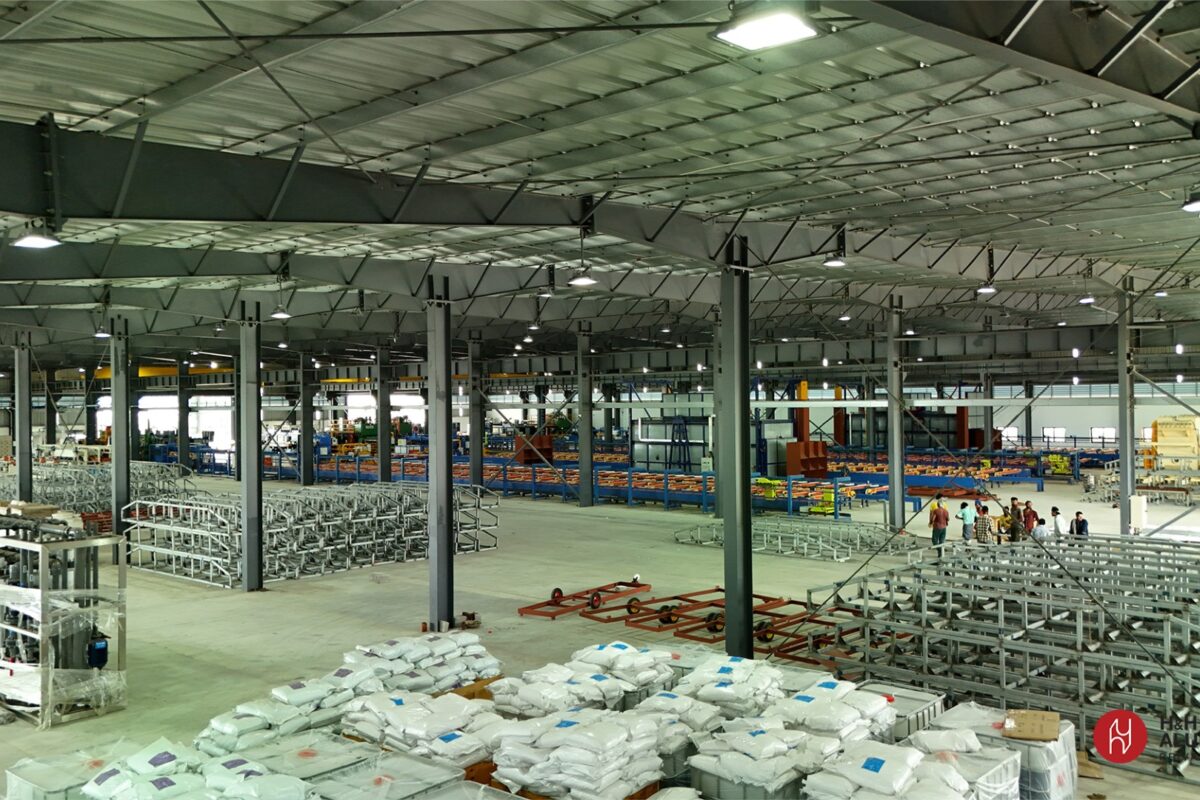Perovskite solar technology company Solaires Entreprises has switched on a pilot production line to manufacture indoor perovskite PV modules in Langford, British Columbia.
The company wants to sell the panels to automotive, consumer electronics, sensor, and LED component manufacturers. “The pilot line will produce 200,000 units per year, each unit measures 3.82 cm x 7.62 cm,” Solaires CEO Fabian De La Fuente told pv magazine.
The types of applications Solaires targets include self-charging electronic devices, wireless keyboards, smart door locks, electronic shelf labels, and sensors. Solaires says its modules can be standalone or paired with rechargeable batteries.
Solaires will produce the complete stack in-house.
“We have all the equipment to do so. Our manufacturing process is a sheet-to-sheet process for rigid glass substrates using slot-die coating, screen printing, laser ablation and lamination. We also have in-house quality control and testing equipment,” said De La Fuente, adding that the manufacturing equipment is commercially available and scalable.
The modules are based on perovskite tuned for indoor light absorption and have a power conversion of 35% in indoor light. Current prototypes have an aperture area of 17.22 cm2 and an active area of 14.70 cm2.
Under halogen lamp illumination at 1000 lux, the panels achieved a power density of 0.15 mW/cm2 and a power maximum power point (MPP) of 2.2 mW, with current MPP at 0.52 mA, and short-circuit current at 0.60 mA.
Under light-emitting diode lamp illumination at 1000 lux, the power density is 0.06 mW/cm2, the power MPP is 0.9 mW, the current MPP is 0.23 mA and the short-circuit current is 0.27 mA. The voltage MPP and open-circuit voltage are the same for both types of lamps, at 4 V and 5 V, respectively.
The company, which originated at Canada’s University of Victoria, was founded in 2022. It started out as a producer of mixed halide perovskite solutions, a product it called Solar Ink, with an energy bandgap of 1.54 eV. It stood out from the competition due to its longer shelf life, according to De La Fuente.
Solaires will continue to sell perovskite materials in addition to manufacturing modules. “Our business model is to license our technology to manufacturers around the globe and includes providing materials, such as our perovskite ink and other unique layers in the full module stack,” said De La Fuente.
This content is protected by copyright and may not be reused. If you want to cooperate with us and would like to reuse some of our content, please contact: editors@pv-magazine.com.








By submitting this form you agree to pv magazine using your data for the purposes of publishing your comment.
Your personal data will only be disclosed or otherwise transmitted to third parties for the purposes of spam filtering or if this is necessary for technical maintenance of the website. Any other transfer to third parties will not take place unless this is justified on the basis of applicable data protection regulations or if pv magazine is legally obliged to do so.
You may revoke this consent at any time with effect for the future, in which case your personal data will be deleted immediately. Otherwise, your data will be deleted if pv magazine has processed your request or the purpose of data storage is fulfilled.
Further information on data privacy can be found in our Data Protection Policy.